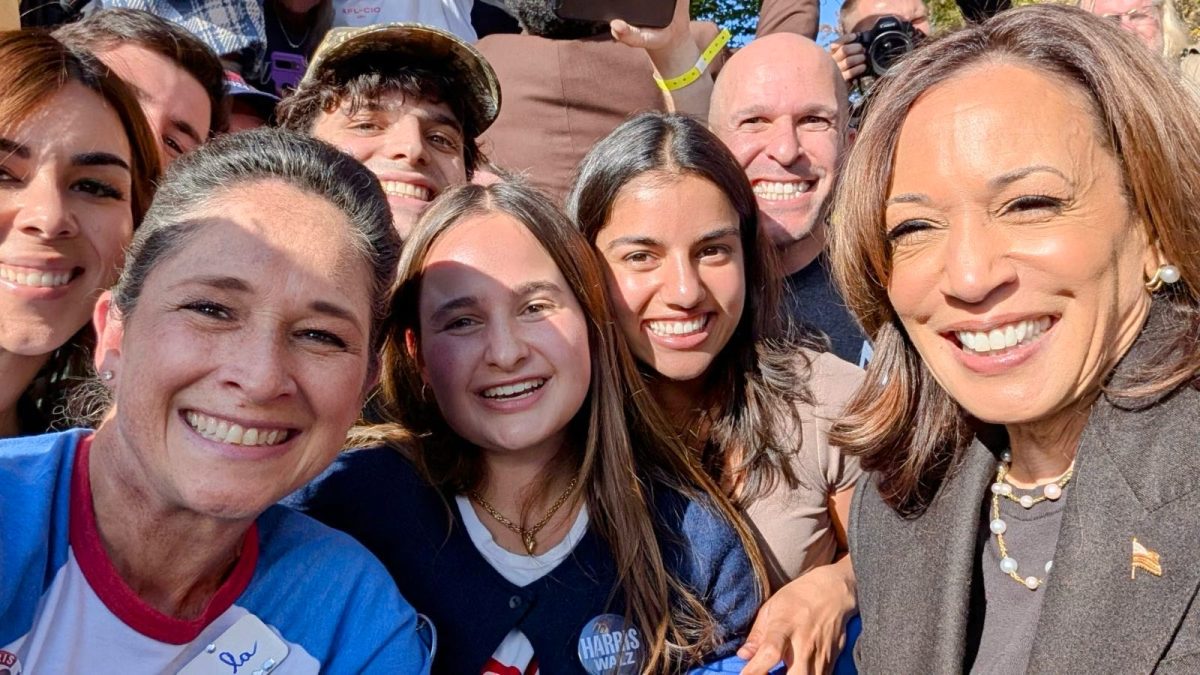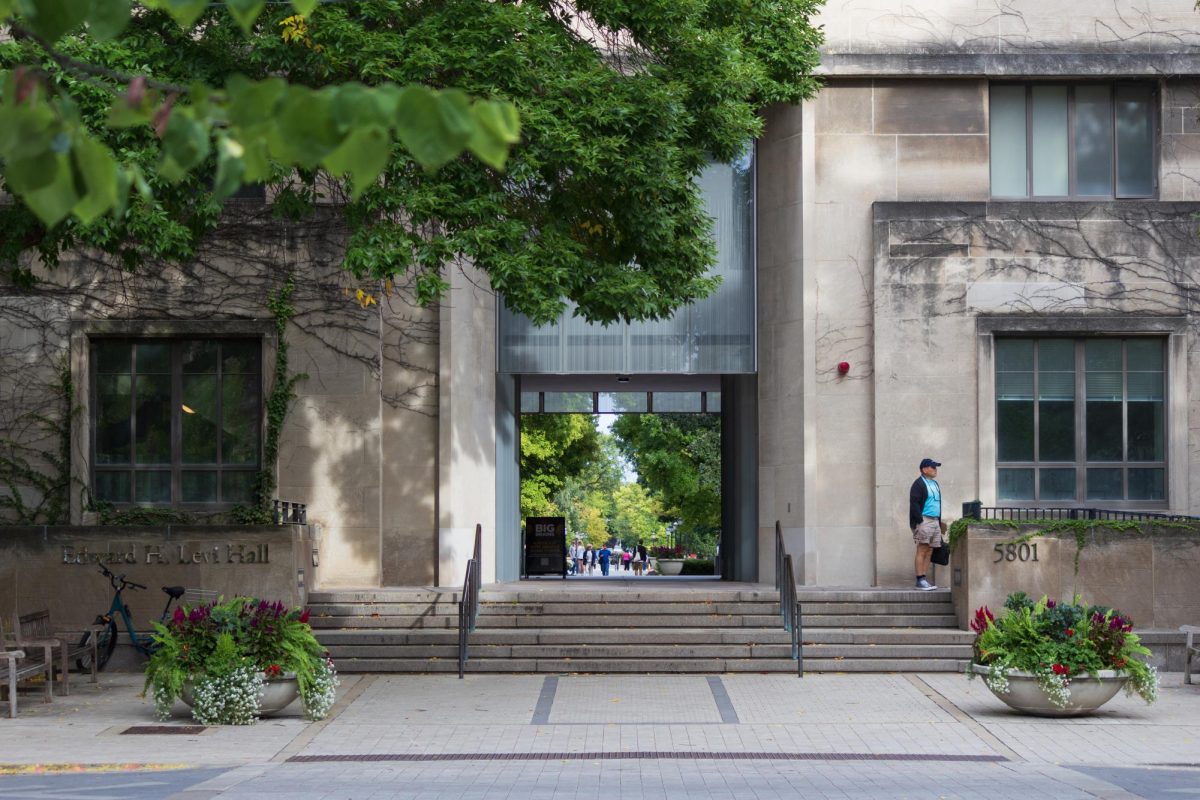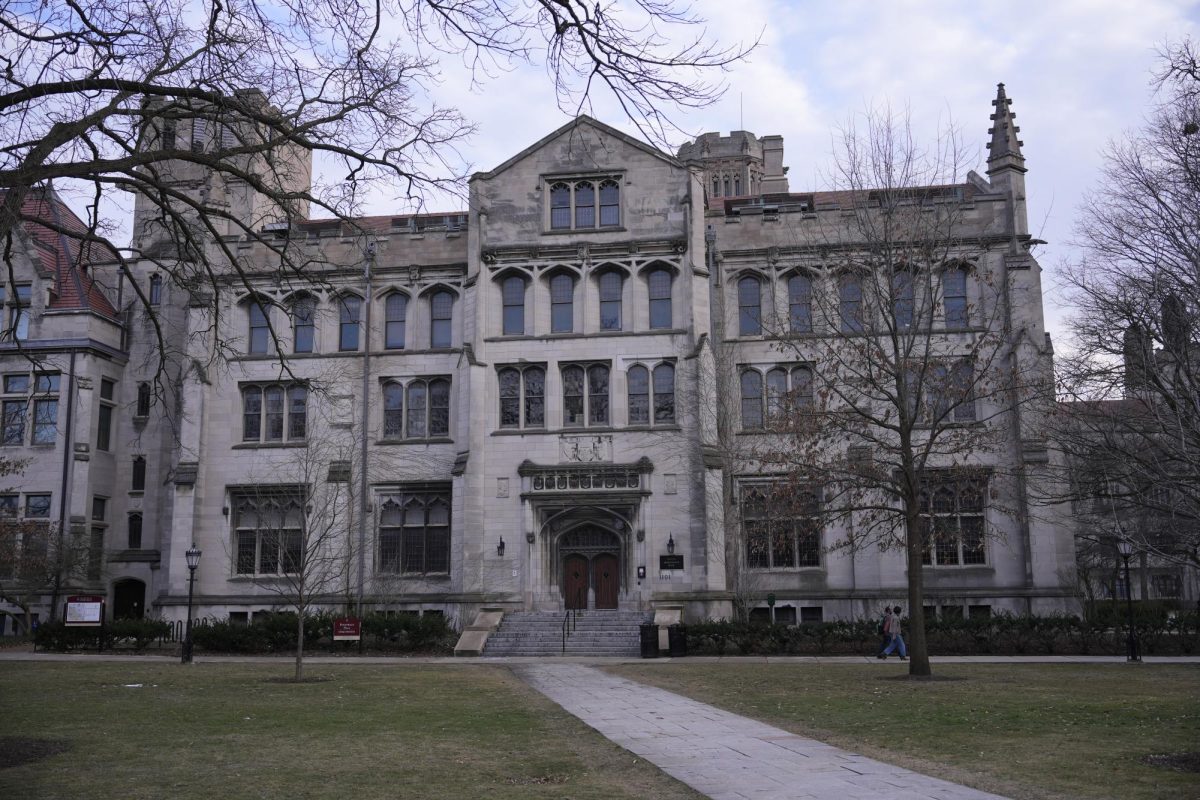Many UChicago students and graduates have felt stirred to act in new ways following the murders of Ahmaud Arbery, Breonna Taylor, George Floyd, and the many other victims of police brutality and white vigilantism. A significant portion of that action has been introspective. We are asking ourselves about our internalized racial biases. We are asking ourselves about the number of books by Black authors we have read. We are asking ourselves about the ways in which we contribute to a racist society on a daily basis.
But why are we not asking about what our employers are doing?
We spend a sizable chunk of our waking hours engaging with our jobs. Often, they are how we construct our identities, where we draw our senses of self-worth, and most importantly, where we invest our creativity and talent. We are not fully responsible for every action, good or ill, taken by our employers, but we are not fully removed from them either.
So, as students and alumni examine their biases, privileges, and paths in life, it’s also worth examining the industries and companies where they work. According to the College’s outcome data for the Class of 2017, 33 percent of graduates who went on to full-time employment took jobs in finance and 12 percent went into consulting. The top post-graduation destinations include Goldman Sachs, Bank of America, and McKinsey. In the two weeks following George Floyd’s murder and the demonstrations that ensued, all three of these companies launched initiatives or made statements to signal their commitment to a racially just society. Companies like these should be judged not on what they do at a particular moment to capture some good P.R., but rather the work they do and the ways they operate on a daily basis.
Goldman Sachs has created a $10 million racial-equity fund “to support the vital work of leading organizations addressing racial injustice, structural inequity and economic disparity.” Coincidentally, $10 million is the same amount it had to pay last year in a compensation discrimination lawsuit from 600 employees who claimed that the bank was denying opportunities for advancement to Black and female employees.
Bank of America has committed to spending $1 billion over four years “to help local communities address economic and racial inequality accelerated by a global pandemic.” But this comes as it battles a lawsuit alleging that it “intentionally failed to provide routine exterior maintenance and marketing at Bank of America–owned homes in African-American and Latino neighborhoods in 37 metropolitan areas.” The bank has also been repeatedly sued for its predatory lending practices that targeted Black and Latino buyers.
McKinsey has tweeted that “[t]he killing of George Floyd…cannot be ignored. There is no place for racism, prejudice, and hatred.” But given the $20 million worth of work that McKinsey has done for Immigration and Customs Enforcement—including recommendations for speeding deportations and decreasing spending on medical care for detainees—I suspect what the tweet actually means is, “There is no place for racism, prejudice, and hatred, unless we can profit from it.”
These are the places where UChicago graduates are working. Admittedly, they are easy to single out, because they’re some of this country’s most powerful corporations, and with great power comes greater capacity to do harm. But my hope is that more members of the UChicago community consider how similar dynamics may be playing out at their own jobs. For any organization whose main goal is profit, the same basic question applies: What injustices are being ignored or even perpetuated in order to increase revenue?
Those of us who work at nonprofits are on the hook as well. Corporate donations to nonprofits act as modern-day indulgences. When a company donates money to popular social causes, it uses an organization’s reputation to publicly absolve itself of any sins committed to obtain its wealth. In 2019, the Metropolitan Museum of Art announced that it would no longer accept donations from the Sackler family on the grounds that the family’s wealth had come from OxyContin sales that contributed to the opioid crisis. A lawsuit by the State of New York alleged that the family “used their ill-gotten wealth to cover up their misconduct with a philanthropic campaign intending to whitewash their decades-long success in profiting at New Yorkers’ expense.” Nonprofit employees should critically consider the injustices their employer may be helping to hide by accepting donations from unsavory companies looking to soften their image.
For this reason, I’m suspicious of the sudden flurry of companies matching their employees’ donations to bail funds and similar causes. When you make a public show of being part of the solution, you can better hide the ways in which you’re part of the problem.
There will always be people who argue that the people within companies who lead efforts like those described above are working to change their institution from the inside. And maybe they’re right. I can’t speak with authority on what the inner workings of those companies look like. But then I see news stories about banks cutting ties with private prisons and ICE detention centers—not because progressive employees advocated for change from within, but because Democrats took the House and started using the Financial Services Committee to draw attention to those banks making a profit from imprisonment. Events like this make me skeptical of the ability of individuals to convince their profit-motivated companies to do the right thing.
In the past few weeks, a new cohort of previously disengaged UChicago students and alumni have become very interested in talking about systemic racism. But will that lead to action? When people give 40-plus hours a week of their time to companies that eagerly but quietly exploit racial inequality for profit, then there is no quantity of employer-matched donations that will change the fact that their talents are being used to further systemic racism. No amount of charity has ever made up for the absence of justice. In the words of Anand Giridharadas,“We talk a lot here about giving more. We don’t talk about taking less.”
Isaac Wink graduated from the College in 2019.







